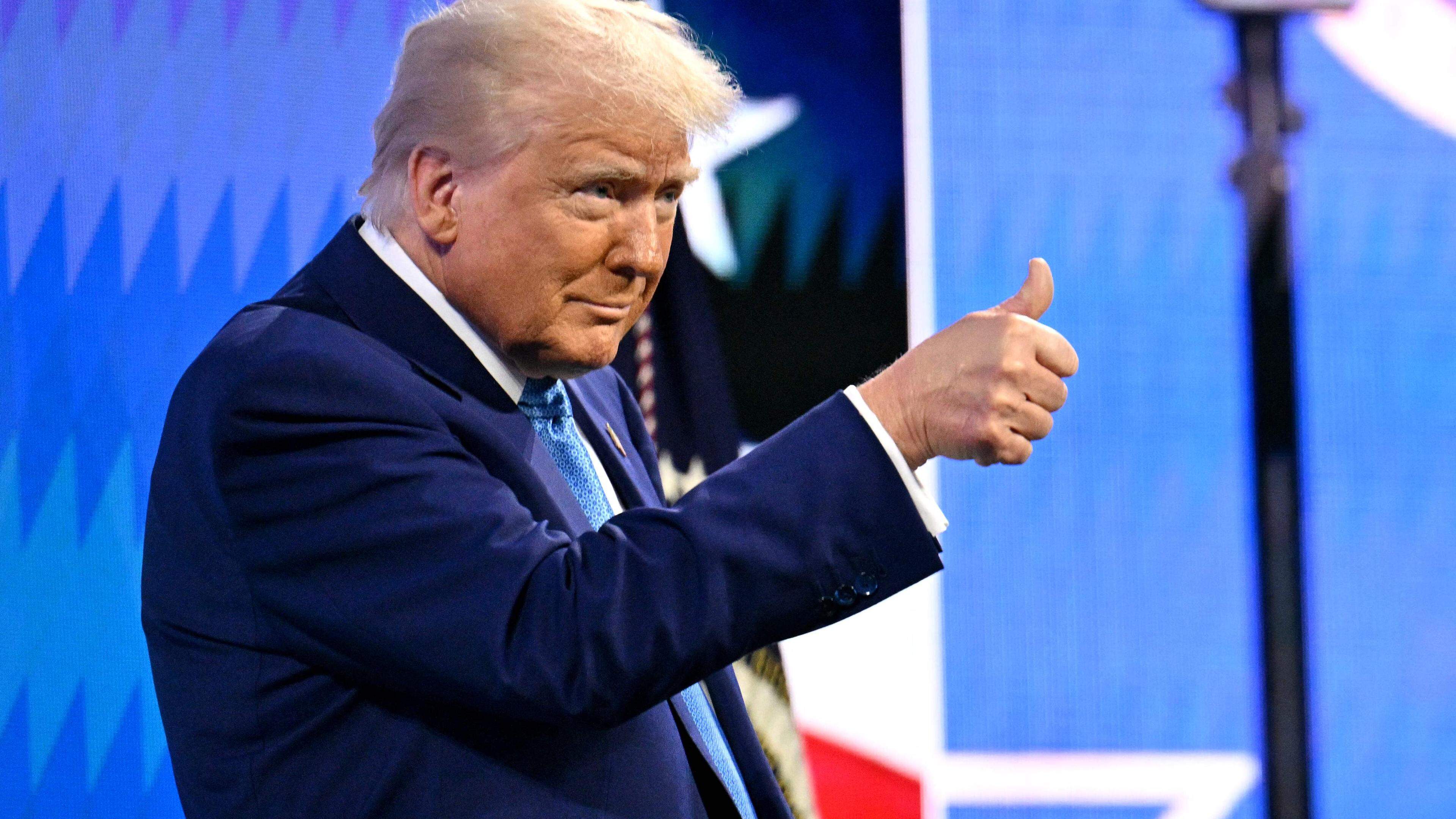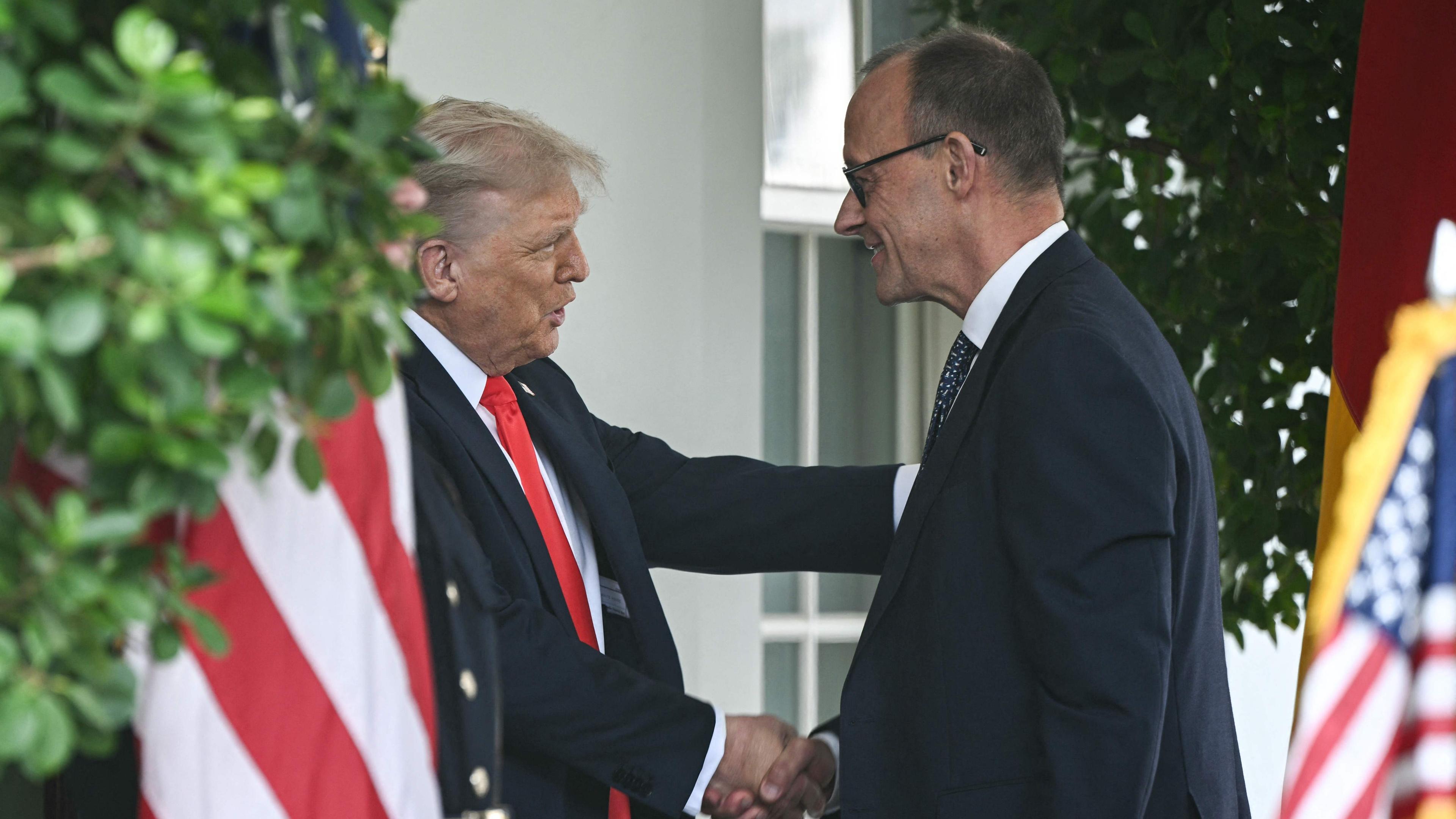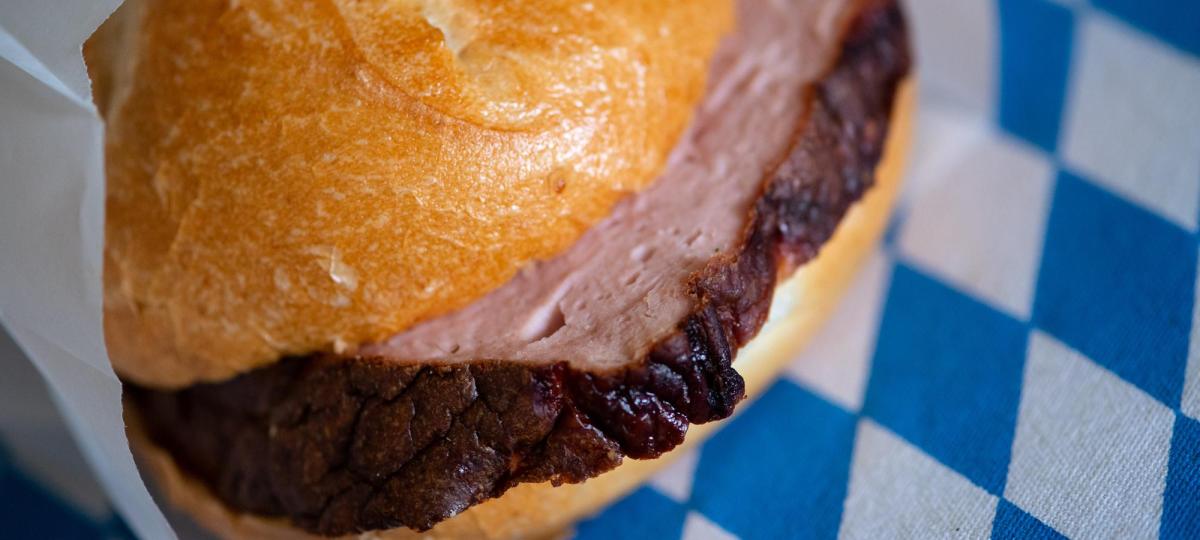How Trump's customs policy becomes a boomerang for the US economy

Many smaller companies report that they increase their prices, freeze expansion plans or accept a decline in their already low profit margins, since the import bills increase.
Half of the US employees are active in these companies, so that the way they deal with Trump's intensified trade war will be decisive for the effects on the overall economy.
Jay Foreman has already felt the effects in Florida. He is the managing director of Basic Fun Inc., a company that designs and sells toys. His imports from China were spared from Trump's tariffs of the first term, which focused more on materials and machines than on consumer goods.
You cannot collect costs
But not this time. Foreman says that his prizes with suppliers and customers were already laid down until the third quarter when a new ten percent China tax was introduced this month. At the moment he has no choice but to absorb the costs that almost a third of this year's profit span could destroy.
If there is no agreement between the USA and China after the abolition of tariffs, he can put its suppliers under pressure, less to be requested, accept lower profits and increase the toy prices in good time before the holidays.
The tariffs in China are the only new tariffs that were introduced in Trump's second term – but many more should follow in the coming weeks. Trump says this protectionist policy will revive American industry. Many analysts fear that they will heat inflation instead and to force the rapidly growing US economy to their knees.
« We just have to put up with it, move in our heads and hope that everything goes well, » says Foreman. He adds that Trump has won the choice of reducing prices and that his government should consider whether the tariffs do not have the opposite effect.
Completely clear: tariffs change the inflation image
This is one of the great unknowns in Trump's trading plans, especially after consumer prices in the United States have risen unexpectedly at the beginning of the year. The chairman of the US Federal Reserve, Jerome Powell, admits that tariffs could change the inflation image, but he is careful when asked how they could affect interest decisions.
Many small companies do not have the option of catching the customs costs: they simply have to increase prices. This is the case with Field Fasten, said the managing director Jim Derry. The company, based in Rockford, Illinois, sells bolts, screws and other components, which largely come from China and Taiwan and are used for the production of all possible things, from football helmets to elevators. « Our customers' products are part of our daily life, » says Derry.
And it is precisely these customers that now know that prices will rise. « We made it very clear, » says Derry. “If tariffs are increased or added, we cannot catch them.
The transfer of a cost increase is not always easy. What if the buyers do not accept the higher price? This gives the largest company less headaches, since as a market -controlling company, they usually have what economists call the power of pricing – the ability to enforce price increases without losing customers.
This does not work for Pervaiz Lodhie, President of the Ledtronics company based in California, which develops and manufactures lighting products. They are used in aircraft and hospitals, and the components come from all over the world, including from China.
Lodhie says that many of his customers have been working with the company for decades, but that does not mean that they pay everything he is asking for. “I have a 40 -year -old major customer who does not allow me to increase prices. I told him that this is the best I can do, ”he says. « Maybe I'll lose the customer … »
« We are paralyzed »
In addition to inflation, another important question is how the tariffs will affect the investments of the companies. It is feared that companies will hesitate to build factories in America and create jobs – the real goal of Trump's trade policy – until they have a more detailed idea of how much they have to pay for the import of machines, parts or materials.
This is a problem for the big corporations – General Motors will not « spend a large amount of capital without clarity, » said CEO Mary Barra – and at the other end of the scale for Todd Adams from Sanitube.
Craft brewers are also preparing for a new inch of 25 percent, which US President Donald Trump imposed aluminum imports and who could come into force on March 12th and could drive up the prices for can beer and non-alcoholic drinks. Photo: Getty Images via AFP
The family company based in Florida produces stainless steel tubes, valves and fittings for food manufacturers. It receives materials from a number of countries and employs around 20 people. Sanitube has put its expansion plans on hold, says Adams, because it is not foreseeable how much his bills will increase as a result of the tariffs – and he has to save money in case.
In the queue
It is already affected by the ten percent tariffs from China and may be affected by two other tariffs to metals and Canadian goods that will come into force at the beginning of March. « As a company, we are paralyzed, » he says. « As long as we don't know what will happen tomorrow, next month or this year, we are in a kind of queue. »
In Trump's first trade war, Sanitube was confronted with an unexpected customs account of a few $ 100,000, says Adams, because the company had a large order from China that had already been bought and sent when the steel and aluminum tariffs were introduced. The government rejected applications for exclusion or a refund.
Since the tariffs concentrated on China at the time, many importers tried to bypass them by shopping elsewhere. Vietnam and Mexico, whose exports to the United States rose sharply, were among the large beneficiaries.
This time Trump continues to throw out his customs network – the goal is not the « friend of the supply of supplys in likeable countries, but the increase in production in the USA itself – so that it could be more difficult to repeat the trick.
They sit firmly
Nevertheless, this is an option that is considered by Darren Klein. He is Chief Operating Officer at Poly Craft Industries in New York, a company that produces packaging material such as bags and bags for well -known consumer brands. The company produces in the USA and uses materials that are obtained from China.
« Ten percent are enough to make a change in behavior, » says Klein of the customs increase this month. “It would most likely make us choose another source. We don't want to increase our prices if we can avoid it. «
You don't have the capital to move to a completely different country and start again.
Claire Reade
Senior Counsel at Arnold & Porter
It is generally more difficult for smaller companies to adapt their supply chains to avoid tariffs, says Claire Reade, Senior Counsel at Arnold & Porter and former deputy US trade officer for China affairs and Chief Counter for the enforcement of Chinese trade. « You don't have the capital to move to a completely different country and start again, » said Reade. « You sit firmly. »
Another thing that lacks little people is the power of the lobbyists. After Trump had started the trade war during his first term, a « confusing large number » of companies could obtain customs residues, according to the Brookings Institute. The result was « high costs for small and medium -sized companies that were unable to overcome the bureaucratic and political hurdles ».
Annual supply bunkered
When the threat caused by trade towards the end of last year, US companies and consumers did everything possible to advance it. An increase in imports and sales of large items such as cars and household appliances indicates a nationwide attempt to advance the Trump-Zöllen.
That was not possible for every small company – Foreman, the toy manufacturer from Florida, said that it would not work in his industry because the children's moods change too quickly – but Margo Clayson did it. Your company – The Mighty Microgreen, based in Incom, Idaho – sells kits for people who want to grow vegetables in the house.
Trump: tariffs of 25 percent for goods from the EU
Clayson says she has bought materials from China in stock in recent months because she calculated that the next phase of the trade war could harm her. She ordered 30,000 heavy plastic shells and received it before Trump's new China-in-customs came into force. This saved it about $ 1,200.
« I thought that is my annual supply and hopefully the situation calms down, » she says. If this is not the case, Clayton sees a danger to her business, since she would probably have to increase prices. She says she checked whether she could get the shells in Germany, but came to the conclusion that this would be too expensive …







